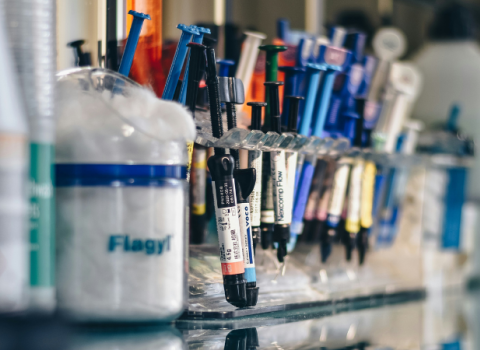
Of course, corporate venturing in the healthcare field is nothing new - pharmaceutical and health care companies continue to turn to such vehicles to maintain a pipeline of emerging technologies in their field via captive investment arms or in-house incubators.
Merck Serono, for example, last year established a €40 million VC fund for drug discovery and development, while companies such as Roche and AHV - a fund backed by US-based not-for-profit health facilities owner Ascension Health - have over the past decade been investing in start-up and later stage ventures. Philips’ own healthcare division launched an incubator in 2006, as did its lighting division, to encourage spin-outs of promising business ideas.
A new take on corporate venture investing
But Philips and Dutch venture capital firm Gilde Healthcare say the deal announced last week, under which Philips has agreed to invest an undisclosed amount in Gilde’s third healthcare fund, is not a standard corporate venturing arrangement. Philips will act solely as a limited partner, with no input into the investing process. It will sit with other investors on the investor committee, overseeing overall strategy, but will have no say as to what companies Gilde chooses to invest in.
“The last thing we want is the perception that this is a captive corporate VC fund,” Pieter van der Meer, senior partner at Gilde, told Science|Business. The Dutch VC is still fundraising for the new vehicle, which has a target size of €200 million. It expects the presence of Philips to draw other investors, but only if they are confident Philips will not exert undue influence. He won’t elaborate on who has committed to the fund thus far, except to say that a number of investors in Gilde Healthcare II have given an investment the green light.
“The goal is not to have a captive venturing arm,” agrees Russ Granzow, vice president, strategic business development at Philips Healthcare. “Other companies shouldn’t be scared away thinking that Philips is manipulating things.”
Window on emerging technologies
What Philips does want, however, is a view of emerging technologies, in what it is calling “patient-centric healthcare,” an area of strategic importance to the company. “We want to get closer to the VC community, with a window into trends, valuations and the competitive status of companies in an area that is of strategic interest to us,” says Graznow.
Philips will also expect a return on its investment, like other investors. Both Granzow and van der Meer stress that Philips is not prevented from talking to Gilde companies on its own about acquiring them, but that it by no means has any first-rights to the companies.
Philips did influence the investment focus of the Gilde fund, however. The Dutch VC has agreed to put one third of the fund’s investments into patient-centric healthcare, broadening out from its traditional focus on therapeutics, medical devices and diagnostics.
Although a catch-all term, the companies are defining patient-centric healthcare as including investments in home healthcare solutions, sleep improvement techniques, image-guided interventions and therapies, with a particular emphasis on cardiology, oncology and women’s health - all areas in which Philips has a strategic interest. Philips’ healthcare division includes the areas of imaging systems, home healthcare solutions, clinical care systems, healthcare informatics and customer services.
Expanding investment focus
For Gilde, the deal is also a chance to branch out its investing focus. “This is an exciting new area in Europe,” says van der Meer, referring to home healthcare solutions in particular. “We all need to save costs in this system. We can’t afford our own healthcare.” Van der Meer says awareness of patient-centric healthcare as an investing concept is further developed in the U.S. than in Europe. “Gilde is one of the few VCs in Europe to have a dedicated focus to this area,” he notes. Not surprisingly, then, he says a greater number of investments in Gilde Healthcare III will emanate from the U.S. than in the two previous funds.
Philips and Gilde have already co-invested in one company in this space, putting money into Waltham, Massachusetts-based BG Medicine, which develops diagnostics based on biomarkers for congestive heart failure. “If developed into a service concept, this could be an interesting future business for Philips,” says van der Meer. He also counts Gilde’s investment in Heidelberg, Germany-based mtm Laboratories, which is developing an inexpensive, large-scale screening test for cervical cancer, as another such company fitting into the category of patient-centric healthcare.
Granzow, who joined Philips in 2008, is also responsible for the healthcare incubator, which he says has, “more than one but less than twelve” startups in it, but won’t elaborate. The idea of a separate investment via a VC has been kicking around for a few years, Granzow said, but only now has the market environment seemed right for the idea. Granzow brings plenty of experience in the biotech start-up arena to the job as well. He was previously a managing director at NY-based venture capital firm Meyer Ventures, before which he as a senior director with the health and safety division of U.S. electronics conglomerate Sarnoff Corporation.





 A unique international forum for public research organisations and companies to connect their external engagement with strategic interests around their R&D system.
A unique international forum for public research organisations and companies to connect their external engagement with strategic interests around their R&D system.